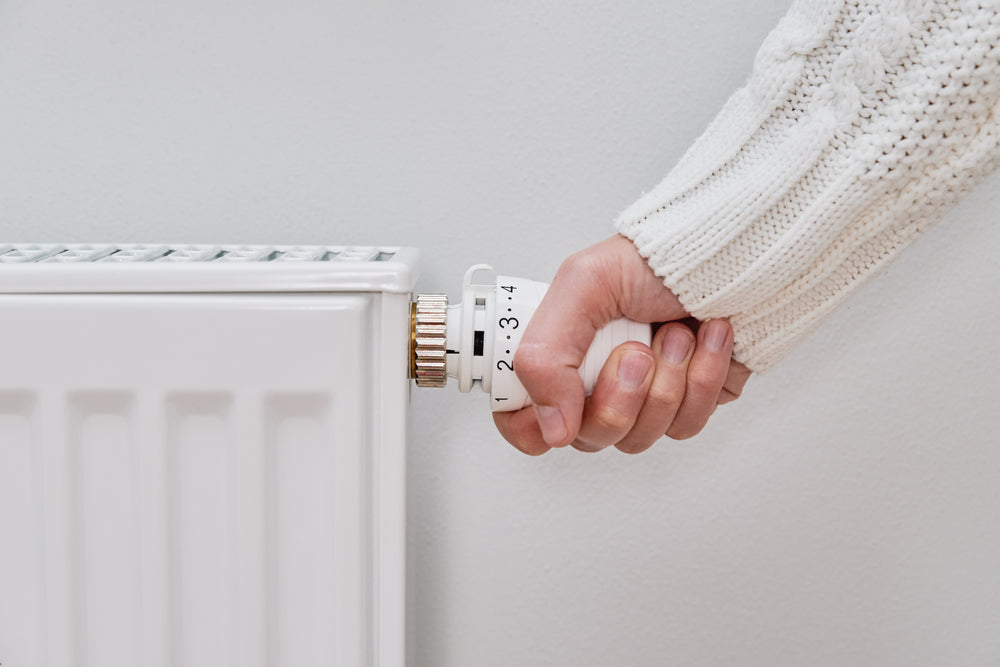
5 Types of Gas Heaters and How to Find the Perfect One for Your Home
Choosing the right gas heater for your home will determine the amount of warmth, comfort, and energy efficiency your family can enjoy. With various types of gas heaters available in Australia, it's important to understand the differences and benefits of each to make an informed decision.
In this article, our team at BCB Sales & Service will help you navigate the different types of gas heaters, how to compare them, and answer questions like, ‘What size gas heater do I need?’.
Types of Gas Heaters
1. Flued Gas Heaters
Flued gas heaters are designed to vent exhaust gases outside, making them a safe and efficient option for indoor heating. These heaters are connected to a flue or chimney, which directs combustion gases outside your home, reducing indoor air pollution and moisture build-up.
Benefits:
- Improved air quality
- Reduced condensation and mould risk
- Safe for bedrooms and living areas
Considerations:
- Higher installation cost due to the flue system
- Requires professional installation
2. Gas Space Heaters
Gas space heaters are portable and versatile, ideal for heating specific areas or rooms in your home. They come in various sizes and designs, making them a popular choice for many households.
Advantages:
- Portable and easy to move
- Quick and efficient heating
- Affordable and widely available
Disadvantages:
- May not be suitable for large spaces
- Limited by the availability of gas outlets
3. Gas Flame Heaters
Gas flame heaters provide both warmth and aesthetic appeal, mimicking the look of a real fireplace. They create a cosy ambience in living rooms or outdoor areas.
Benefits:
- Attractive flame effect
- Efficient heating source
- Adds to home decor
Safety Tips:
- Ensure proper ventilation
- Regularly check for gas leaks
- Use a fireguard if necessary
4. Convection Gas Heaters
Convection gas heaters work by circulating warm air throughout the room, providing consistent and even heating. These heaters are often more energy-efficient than radiant heaters, making them a popular choice for larger spaces.
Pros:
- Even heat distribution
- Energy-efficient
- Quiet operation
Cons:
- Slower to heat up compared to radiant heaters
- May require professional installation
5. Natural Gas Space Heaters
Natural gas space heaters are connected to your home’s natural gas supply, offering a reliable and cost-effective heating solution. They are environmentally friendly and provide continuous heat without the need for refuelling.
Overview:
- Cost-effective operation
- Reliable and continuous heating
- Environmentally friendly
How to Compare Gas Heaters?
Energy Efficiency
An energy-efficient heater will save you money on utility bills and reduce your carbon footprint. Look for heaters with high energy star ratings and compare their efficiency to make an informed choice.
Heating Capacity
The heating capacity of a gas heater is measured in kilowatts (kW), indicating how much heat the heater can produce. It's essential to choose a heater with the right capacity for your space to ensure effective heating.
How to Compare:
- Check the kW rating of the heater’s specifications.
- Use room size as a guide: 1 kW per 10 square meters is a general rule of thumb.
- Consider the insulation and climate of your area.
Cost
When comparing gas heaters, consider the initial purchase and long-term operating expenses. While some heaters may be cheaper upfront, they might have higher running costs.
Cost Considerations:
- Initial purchase price
- Installation costs
- Maintenance and operational expenses
What Size Gas Heater Do I Need?
Choosing the right size gas heater depends on several factors:
- Room size and layout: Measure the area you want to heat.
- Insulation and climate: Well-insulated homes require less heating.
- Usage patterns: Consider how often and how long you’ll use the heater.
To estimate the required heater size, you can use a simple formula:
Heater Capacity (kW) = Room Area (sqm) x Insulation Factor
The insulation factor varies depending on your home’s insulation quality (e.g., 0.08 for well-insulated dwellings).
Tips for Choosing the Perfect Gas Heater
Safety Features
Safety should be a top priority when selecting a gas heater. Look for heaters with essential safety features such as:
- Oxygen depletion sensors: Shuts off the heater if oxygen levels drop.
- Overheat protection: Automatically turns off the heater if it overheats.
- Flame failure devices: Cuts off the gas supply if the flame goes out.
Installation and Maintenance
Proper installation and regular maintenance are crucial for the safe and efficient operation of your gas heater. Be sure to:
- Hire a licensed professional for installation
- Ensure proper ventilation and flue systems
- Follow the manufacturer’s guidelines
- Regularly clean and inspect your heater
- Schedule annual maintenance checks
- Replace worn-out parts promptly
Environmental Considerations
Gas heaters have a lower environmental impact compared to many other heating options. To minimise your carbon footprint, choose environmentally friendly heaters and follow these tips:
- Opt for natural gas space heaters.
- Ensure your heater is properly maintained for optimal efficiency.
- Use programmable thermostats to reduce energy consumption.
Find the Types of Heaters You Need for Your Property Online with BCB Sales & Service
Choosing the right gas heater for your home can significantly impact your comfort and energy bills.
For expert advice and a wide range of top-quality gas heaters, browse our selection of gas heaters & wood heater fans available online or contact us at BCB Sales & Service today.